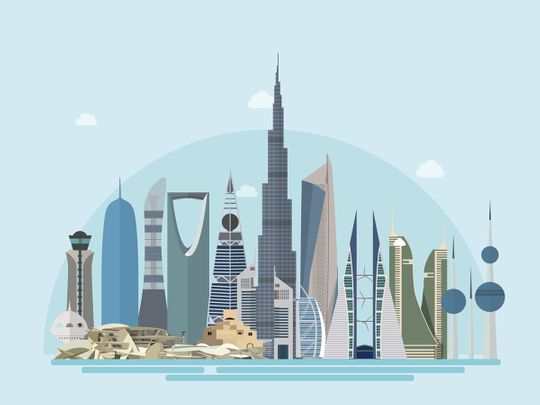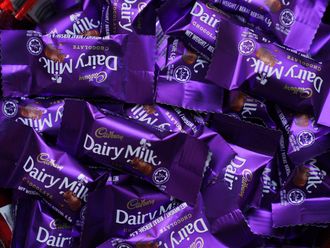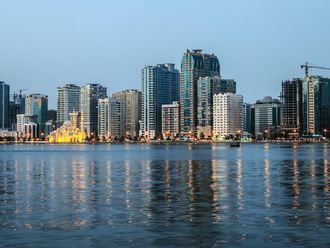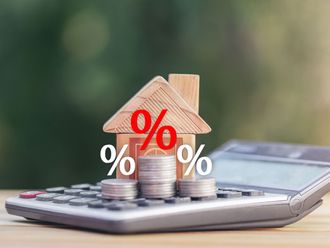
The Gulf Cooperation Council (GCC) countries have emerged as magnets for foreign direct investment (FDI), experiencing a notable surge in capital inflows across various sectors. This phenomenon underscores the region's attractiveness as a hub for global business and investment, driven by several compelling factors that have positioned the GCC as a pivotal player in the global economy.
1) Economic stability and diversification initiatives
One of the primary reasons for the increasing FDI in the GCC is the region's robust economic stability and diversification efforts. Traditionally reliant on oil revenues, GCC nations have embarked on ambitious economic diversification programmes aimed at reducing dependence on hydrocarbons and fostering a more sustainable economic landscape.
Countries like Saudi Arabia, the UAE, and Qatar have implemented comprehensive economic reforms, including privatisation initiatives, infrastructure development projects, and regulatory reforms, which have significantly enhanced the business environment and attracted foreign investors seeking stable and profitable opportunities.
Renoy Kundukulam, CEO of wealth management company Finmark Captial, said that one of the main reasons for foreign investors’ massive attraction in the GCC is the diversified investment hubs.

They [GCC] have attracted FDIs into sectors such as infrastructure, warehousing and logistics, travel and tourism, IT (data centres), telecom infrastructure, and renewable energy
"This shift has been driven by long-term strategic plans like Kuwait Vision 2035, Abu Dhabi Economic Vision 2030, Saudi Arabia Vision 2030, and the Dubai Economic Agenda (D33). Additionally, the region's political stability has bolstered investor confidence in the long-term prospects of these nations."
It’s not just the initiative of diversification that attracts foreign investors, it’s the ease and smoothness that businesses operate with in the GCC. Tristan Brandt, managing director, Digital Technology Services of Alvarez and Marsal, discussed this point saying,

These transformation programmes are addressing investor concerns with respect to ownership control, transparency, and rule of law.
"Consequently, the GCC is seen as an outlier in current global economic environment where opportunity and returns appear more favourable. As a result, capital inflows are improving across a range of sectors and are expected to continue this trend."
2) Strategic geographic location
The strategic geographic location of the GCC countries has also played a pivotal role in attracting FDI. Anuj Goel, senior executive officer, of asset and wealth management company, Century Private Wealth, said, “Due to the GCC countries' favourable geographical position between the junction of Europe, Asia, and Africa, it is more attractive as a global trade and logistics hub.”
The well-developed infrastructure, including state-of-the-art airports, seaports, and logistics networks, further enhances the region's appeal as a logistics and distribution hub. This strategic advantage has not only facilitated easier access to regional markets but also positioned the GCC as an attractive destination for companies looking to expand their global footprint.
3) Investment-friendly policies and incentives
Governments across the GCC have implemented investor-friendly policies and incentives to encourage FDI. These include tax incentives, reduced bureaucratic hurdles, streamlined business registration processes, and enhanced protection of intellectual property rights.
Bas Kooijman, CEO and asset manager of asset management company DHF Capital S.A discussed an important point when asked about what kind of investment-friendly policies the region is adopting.

It has also been actively reforming and implementing policies to encourage foreign investment. For example, the need to have a 51 per cent local shareholder has been gradually removed for most businesses, and in most GCC countries
"This has elevated the appeal of investing in the region as direct ownership has now become possible. Many high net worth (HNW) investors and VC [venture capital] funds have accordingly been flocking to the GCC to capitalise on this development. In fact, as it relates to the UAE, the country is on pace to welcome nearly twice as many HNW investors as the United States and this will likely have a direct correlation to a further uptick in regional investment."
The establishment of special economic zones and free trade zones has provided foreign investors with additional benefits, such as full ownership rights and exemption from import and export duties. Such measures have created a conducive environment for business growth and innovation, making the GCC a preferred destination for both multinational corporations and small to medium-sized enterprises seeking to capitalise on emerging market opportunities.
4) Diverse investment opportunities
The GCC offers a diverse range of investment opportunities across various sectors, including real estate, hospitality, finance, healthcare, renewable energy, and technology. The rapid urbanisation and population growth in the region have fueled demand for infrastructure development, residential housing, and commercial projects, attracting significant investments from global real estate developers and construction firms.
James Dervin, managing director of global management company Alvarez and Marsal in the Middle East, and co-head in the region talked about the various industries that are accessible for investment in the GCC.

Fundamentally, investors outside of the GCC can see the scale of the opportunities that the GCC presents. There are large pools of capital that have been raised in developed, mature and extremely competitive markets looking for a home, and the GCC seems to be becoming increasingly attractive.
"Outsized opportunities across multiple sectors and industries, developing corporate and legislative landscapes, increasing ease of doing business, potentially favourable taxation arrangements (i.e. subject to efficient structuring and investors’ circumstances) and also the potential to form extremely valuable strategic relationships with local partners all seem to be contributing to foreign investors’ desire to play in GCC markets."
Moreover, the burgeoning healthcare sector in countries like the UAE and Saudi Arabia has attracted investments in hospitals, medical facilities, and pharmaceutical companies aiming to cater to the growing healthcare needs of the population.
Goel also raised an interesting point that gives the GCC an advantage for FDI inflows. He said, “The opening of closed sectors, previously off-limits to foreign ownership, is gradually expanding the investable universe within the region. The countries have created a thriving startup environment, most notably in urban centres such as Dubai, Abu Dhabi, and Riyadh, which is creating an inflow of venture capital and driving innovation.
“Deeper collaborations between GCC sovereign investment funds and foreign companies are causing knowledge transfer and new avenues for investment. Environmental sustainability and green technologies is a distinct niche that GCC countries are focusing on, creating associated opportunities in renewable energy.”
5) Growing consumer market and rising income levels
The GCC boasts a young and affluent population with rising disposable incomes, which has contributed to the region's emergence as a lucrative consumer market. The increasing consumer spending on luxury goods, entertainment, and leisure activities has attracted international retailers, hospitality chains, and entertainment companies seeking to capitalise on the region's affluent clientele. Moreover, the growing popularity of e-commerce platforms and digital services has further fueled investments in technology and digital infrastructure to cater to evolving consumer preferences and behaviours.
Dr Pallavi Kishore, head of accounting and finance at Middlesex University Dubai spoke about how the UAE, Qatar, and Saudi Arabia are the top attractions among investors. She said, “Whilst 2022 saw a global decline in FDI, mainly attributed to overlapping geopolitical and socio-economic crises, the fact that the UAE has become – and remains – one of the world's most stable investment destinations cannot be overlooked. The UAE recorded its highest FDI inflow at US$22.7 billion (Dh83 billion), being a 10 per cent increase from the previous year and surpassing all other countries in the Gulf Cooperation Council (GCC).
"According to the Kearney FDI Confidence Index [an annual survey of global business executives that ranks markets that are likely to attract the most investment], the GCC countries, including the United Arab Emirates, Qatar, and Saudi Arabia, emerge as the most attractive destinations for investors. China, India, the United Arab Emirates, Qatar, Thailand, and Saudi Arabia make up the top six positions, and they are the only emerging markets included in the world rankings. In emerging markets, UAE and Qatar scored the highest optimism ranking as investors continue to prioritise transparency of government regulations, tech capabilities, and tax rates in making investment decisions.”
Vijay Valecha Chief Investment Officer of investment services company Century Financial shared some statistics and percentages showing why the GCC is attractive to foreign investors. He said “Greenfield FDI projects drive economic growth in the recipient country by adding jobs and transferring technology & knowledge. While global FDI fell by 2 per cent to $1.3 trillion (Dh4.7 trillion) in 2023, driven by the economic slowdown and ongoing geopolitical tension. UAE pulled remarkable FDI inflows."
In 2022, UAE ranked 19th globally in terms of FDI inflows and held on to aims of being one of the top 10 countries globally attracting FDI. Today, according to the World Investment Report 2024, UAE came in right after US securing itself the second place globally in greenfield FDI project announcements in 2023. During 2023, the country announced 1,323 greenfield FDI projects in comparison to United States’s 2,152. For perspective, United Kingdom stands at 1,184, India at 1,058 and Germany at 1,036.
In terms of FDI inflows in 2023, UAE pulled in $30.68 billion (Dh112 billion) compared to $22.73 (Dh83 billion) billion in 2022, a 35per cent year on year growth and a 72 per cent growth from 2019’s FDI inflow of about $17.87 billion (Dh65.6 billion). UAE’s FDI inflow stock grew to $2.2 trillion (Dh8 trillion) in 2023 from $1.5 trillion (Dh5.5 trillion) in 2019, a 47 per cent growth in 5 years. Now, the UAE targets to attract an impressive $150 billion (Dh550 billion) in FDI by 2031, suggesting a massive 388 per cent jump from 2023’s base. (Source: Bloomberg)”
The GCC's increasing attractiveness to foreign investors can be attributed to a combination of factors, including economic stability, diversification efforts, strategic geographic location, investment-friendly policies, diverse opportunities across sectors, growing consumer market, and regional stability. As the GCC continues to implement ambitious economic reforms and capitalise on its inherent strengths, it is poised to sustain its growth trajectory and solidify its position as a leading destination for foreign direct investment in the global arena.















